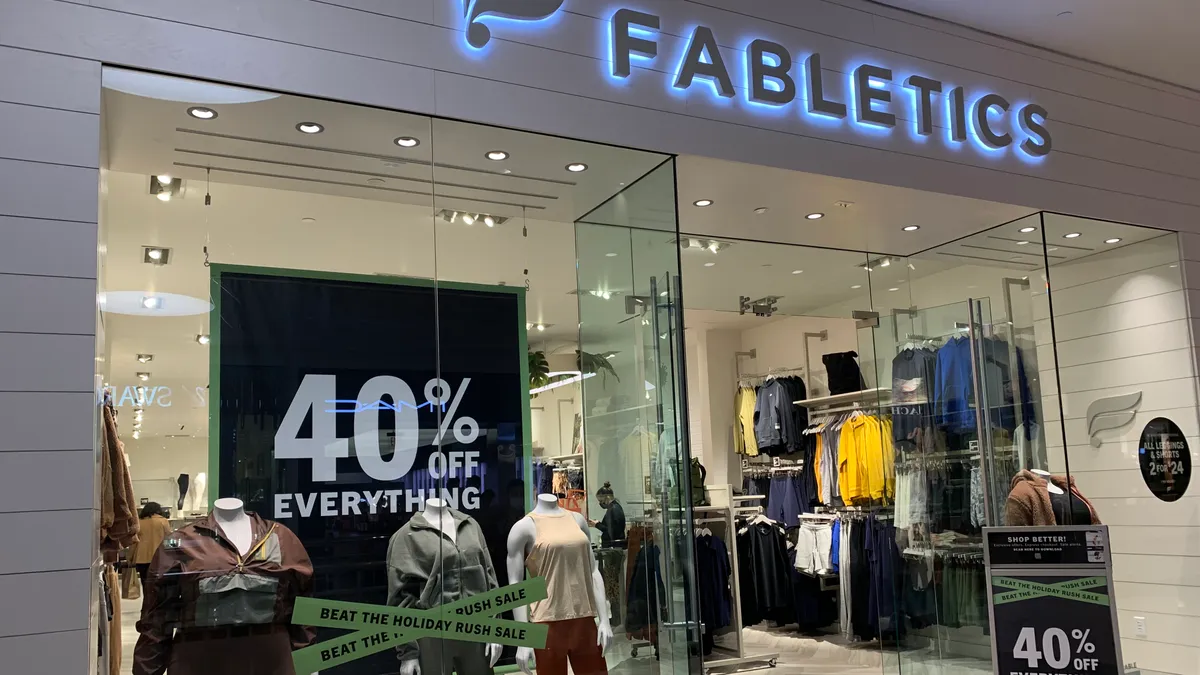Dive Brief:
- Celebrity-backed retail brands have opened over 300,000 square feet of space in the past decade, with 76% of those brands choosing shopping malls over other types of retail property type, according to a new research report by JLL, a global commercial real estate firm.
- More than half (53%) of all celebrity retail brands are in the beauty category.
- Nearly 60% of all celebrity retail brands were founded in the last six years, the report found.
Dive Insight:
The acceleration of e-commerce coupled with the onset of COVID-19 played a major role in the rapid growth of celebrity brands as people spent more time at home and more time shopping online. Over a third (38%) of the brands studied by JLL launched since 2020.
Within what the report called the “lifecycle of celebrity retail,” most celebrity retail brands started online. Social media plays an enormous role in the marketing of these brands, where together these companies have a combined 7 billion followers on Instagram alone.
Their progression would take the brand from online e-commerce to wholesale partnerships with retailers, followed by pop-up test stores and ultimately to permanent locations of their own.
Among the brands cited in the report as major success stories were Savage X Fenty by Rihanna, Skims by Kim Kardashian, Goop by Gwyneth Paltrow, Fabletics by Kate Hudson, The Honest Company by Jessica Alba, Uncommon James by Kristin Cavallari and Billionaire Boys Club by Pharrell Williams.
Of all the celebrity brands that have existed, just 11% have made it to the brick-and-mortar stage, with Los Angeles being the most popular city for the first permanent location.
The report argues that Rihanna has been among the most successful of the celebrity retail brands. Her Fenty Beauty partnership with LMVH launched in 2017 and had revenue of $573 million in 2018, per the report. LMVH reported that the brand had doubled its volume in 2022.
Kardashian’s Skims has also seen explosive growth in recent years. With a pop-up shop at Rockefeller Center and a shop within Saks Fifth Avenue in New York, the brand is on a path to opening its first permanent location sometime in 2024. The brand earlier this month reached a $4 billion valuation after its recent Series C funding round of $270 million. Over three rounds dating back to 2020 Skims has raised $670 million and is projected to reach net sales this year of $750 million.
“It’s fascinating to see how the growth of this category coincided with the growth of e-commerce,” said C. Ebere Anokute, national research manager for JLL. “Even in the last two to three years, more than a third of these brands came out of COVID. With celebrities not being able to go on tour, not being able to go to movie sets, they were looking for other revenue streams and other things to do. And we were all at home on our phones scrolling, so it created this perfect storm for these brands to pop up and be able to thrive.”
The report also found that these digitally native brands favored shopping malls over other property types, including street retail, hospitality and transit. “These brands seem to be following a similar trajectory, and seem to have found a lot of luck in malls,” Anokute said. “It’s a positive thing for mall owners to be attuned to this as a new sector that could take up some of the occupancy in these shopping centers across the country.”














